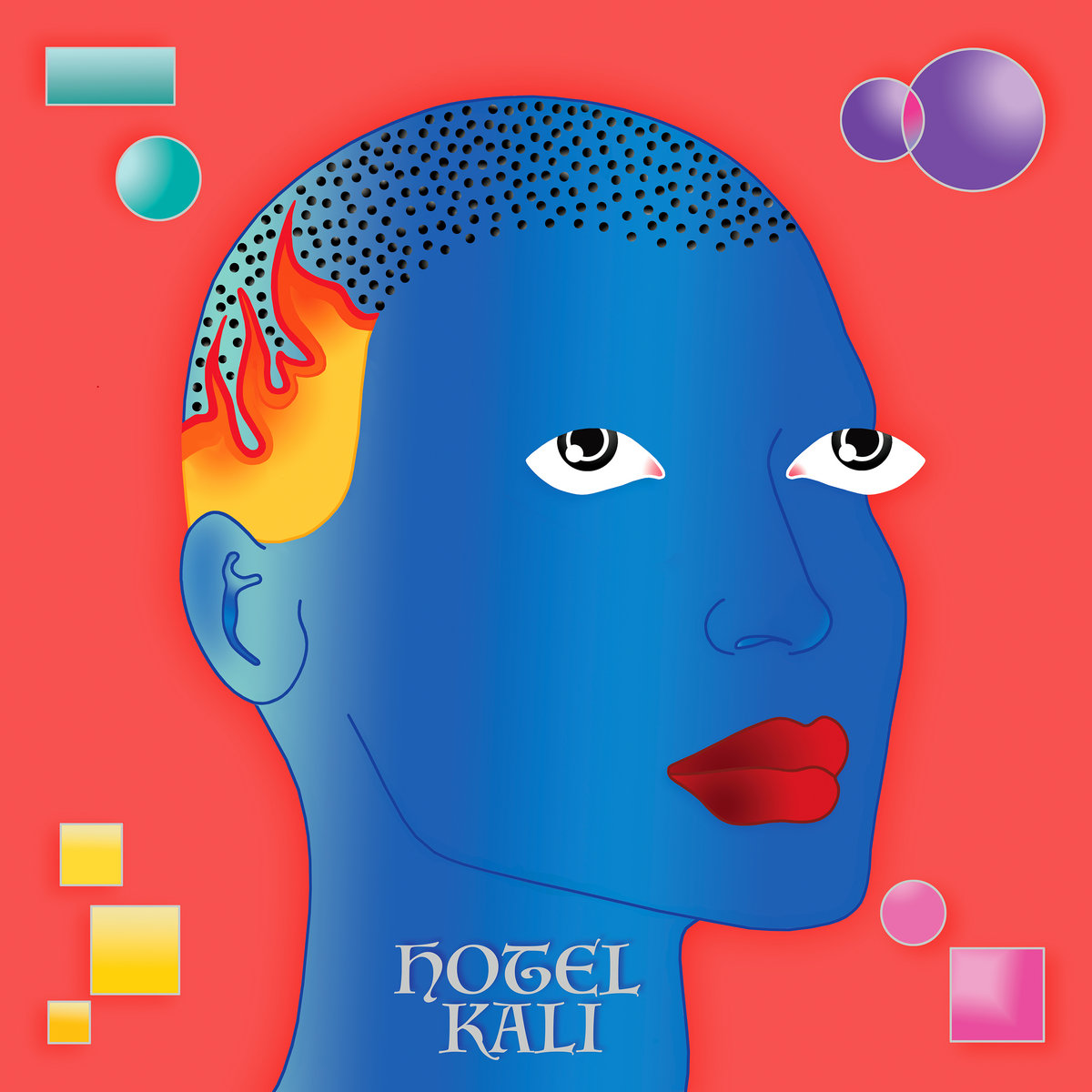Dieser Tage erscheint das Debütalbum der indisch-deutschen Band Hotel Kali. Hotel Kali wurde in Kolkata gegründet, als Theresa Stroetges — Lesern unseres Magazins bekannt von ihrem Projekt Golden Diskó Ship und dem Trio Soft Grid — vor drei Jahren eine Artist Residency beim dortigen Goethe-Institut absolvierte, mitorganisiert vom Musicboard Berlin und dem Border Movement Delhi. Mit von der Partie sind Varun Desai, Debjit Mahalanobis und Suyasha Sengupta — alle drei Größen der dortigen Musikszene und lokal bekannt mit Acts wie 5volts, Varundo, Plastic Parvati und The Ganesh Talkies. 
Der Sound von Hotel Kali entspricht einer reizvoll-verqueren und stets eingängigen Mixtur aus groovigen Disko-Rhythnen, stylischen 60s-Vibes, zackigem Minimalismus, hypnotischer Psychedelik und einem unbekümmerten Kolorit, das keine Scheu hat vor Zitaten traditioneller und traditionell anmutender Musik des vor musikalischer Vielfalt aus allen Nähten platzenden Subkontinents. Songtitel wie “Buntes Schwarz” oder “Calm/Storm” illustrieren die Quadratur des Kreises, die mit diesen hybriden Stil immer wieder zustande gebracht wird. Freunde des Goldenen Diskoschiffs im Hafen von Reykjavik dürfen sich über eine Neuinterpretation des Songs “Fake Horse” voll frickeliger Zeitrafferbeats freuen. Das Album erscheint als LP und digital bei Antime.
“Hotel Kali isn’t a place but a story; one collectively told by four people who first happened to be in the right place at exactly the right time and then managed to transcend both space and time through their music. The German-Indian band’s self-titled debut album was not designed on a drawing board but rather came to life in spontaneous jam sessions, driven by a desire to integrate four distinct voices into one narrative and marked by all the happy accidents that took place along the way. “Hotel Kali” is a living, breathing entity that theoretically picks up on many different musical traditions but in practice challenges them all. English and Bengali, motorik grooves and intricate guitar lines, pop sentiments and exploratory iconoclasm come together, dance around each other, and over the course of seven songs find a common ground somewhere between and far beyond cosmic rock, experimental dance music, and adventurous post-rock.” (Antime)
